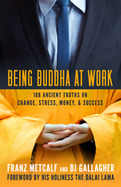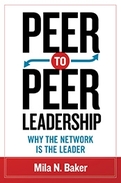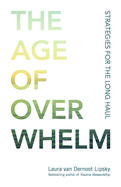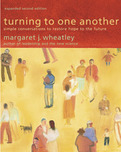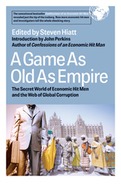2015
When Aspen Baker had an abortion at the age of twenty-four, she felt caught between the warring pro-life and pro-choice factions, with no safe space to share her feelings.
In this hopeful and moving book, Baker describes how she and Exhale, the organization she cofounded, developed their “pro-voice” philosophy and the creative approaches they employed to help women and men have respectful, compassionate exchanges about even this most controversial of topics. She shows how pro-voice can be adopted by anyone interested in replacing ideological gridlock with empathetic conversation. Peace, in this perspective, isn't a world without conflict but one where conflict can be engaged in—fiercely and directly—without dehumanizing ourselves or our opponents.
2012
The idea of hierarchy is breaking down everywhere, from politics to religion to social relationships-why should leadership be any different?
Our leadership models are stuck in an Industrial Age, top-down mentality. But in our complex, data-drenched, 24/7 world, there is simply too much information coming from too many different directions too quickly for any one leader or group to stay on top of it. Hierarchy is breaking down everywhere—why should leadership be any different? Inspired by the peer-to-peer model of computing used in social networking and crowdsource technologies, Mila Baker shows a new way to lead. Organizations, she says, must become networks of "equipotent" nodes of power—peer leaders. The job of the leader is now to set the overall goals and direction and optimize the health of that network, not tell it what to do. In these organizations, leadership roles shift rapidly to fit the needs of any given situation. Information flows freely so those who need it can find it easily and act on it immediately. Feedback becomes an organic part of the workflow, enabling rapid course corrections. Baker shows how companies like Gore and Herman Miller have achieved long-term success practicing these principles and provides a structure that any organization can adapt to build flexibility, resiliency, and accountability.2018
• By the author of Leadership and the New Science (over 250,000 copies sold)
• Shows how the simple but long neglected act of conversation-of thoughtfully talking and listening to one another-has the power to change lives
• Offers insightful advice on how to conduct conversations that will help us to genuinely connect with each other and restore hope to our individual lives
• Provides ten "conversation starters" to provoke rich and meaningful exchanges
• Builds on the shocking picture of worldwide economic corruption first presented in John Perkins' Confessions of an Economic Hit Man
• Features a dozen chapters detailing contemporary examples of how the economic hit man game is played around the globe
John Perkins’ controversial and bestselling exposé, Confessions of an Economic Hit Man, revealed for the first time the secret world of economic hit men (EHMs). But Perkins’ Confessions contained only a small piece of this sinister puzzle. The full story is far bigger, deeper, and darker than Perkins’ personal account revealed. Here other EHMs, journalists, and investigators join Perkins to tell their own stories, providing the first probing and expansive look into this pervasive web of systematic corruption.
With chapters spotlighting how specific countries around the globe have been subverted, A Game As Old As Empire uncovers the inner workings of the institutions behind these economic manipulations. The contributors detail concrete examples of how the “economic hit man game” is still being played: an officer of an offshore bank hiding hundreds of millions of dollars in stolen money, IMF advisers slashing Ghana’s education and health programs, a mercenary defending a European oil company in Nigeria, a consultant rewriting Iraqi oil law, and executives financing warlords to secure supplies of coltan ore in Congo. Together they show how this system of corruption and plunder operates in real life, and reveal the price that the rest of the world must pay as a result.
Most important, A Game As Old As Empire connects the dots, showing how the various pieces of this system come together to create the world’s first truly global empire.



